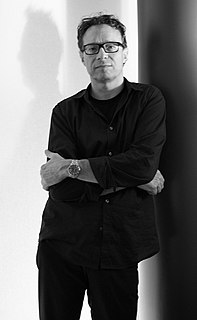A Quote by Kenneth Keniston
In the end, the fate of children depends on our ability to use technology constructively and carefully. The connection of childrenand technology is not simply a matter of seat belts, safe toys, safe air, water and food, additive-free baby foods, or improved television programming. These are all important issues, but to stop here is to forget that today's children will soon be adults. Technological decisions made today will determine, perhaps irrevocably, the kind of physical and social world we bequeath them and the kind of people they become.
Quote Topics
Ability
Adults
Air
Baby
Become
Belts
Bequeath
Carefully
Children
Connection
Decisions
Decisions Made
Depends
Determine
End
Fate
Food
Foods
Forget
Free
Important
Important Issues
Improved
In The End
Irrevocably
Issues
Kind
Made
Matter
Our
People
Perhaps
Physical
Programming
Safe
Seat
Seat Belts
Simply
Social
Soon
Stop
Technological
Technology
Television
Them
Today
Toys
Use
Water
Will
World
Related Quotes
You can't just stop technological progress. Even if one country stops researching artificial intelligence, some other countries will continue to do it. The real question is what to do with the technology. You can use exactly the same technology for very different social and political purposes. So I think people shouldn't be focused on the question of how to stop technological progress because this is impossible. Instead the question should be what kind of usage to make of the new technology. And here we still have quite a lot of power to influence the direction it's taking.
Each person decides in early childhood how he will live and how he will die... His trivial behavior may be decided by reason, but his important decisions have already been made: what kind of person he will marry, how many children he will have, what kind of bed he will die in... It is incredible to think, at first, that man's fate, all his nobility and all his degradation, is decided by a child no more than six years old, and usually three... (but) it is very easy to believe by looking at what is happening in the world today, and what happened yesterday, and seeing what will happen tomorrow.
What I’m trying to show is that the main event today is not seen by those of us that are living it… So it’s not the effect of [technology], it is that everything exists with-in [its milieu]. It's not that we use technology, we live technology. Technology has become as ubiquitous as the air we breathe, so we are no longer conscious of its presence.
Today, tomorrow and every day, we will see at least 2,000 young children killed or seriously injured on the world's roads. This is unacceptable, preventable, and we have to stop it. We have the vaccines for this disease: helmets, seatbelts, speed enforcement, safe road design. We just need to use them.
Our eventual aim is simply stated - that there should be no safe haven for terrorists anywhere in the world. We say to the people of Afghanistan: 'You have been ill served by those who have made your country a centre for terrorism across the world. As soon as this stops, the world will work with you to build a better future for you and for your children.
Money and one of its embodiments, social class, are both riveting and mysterious to children. And if we don't challenge today's stigma around class status, it will warp a new generation's experience of an even more important class - the kind in which they learn. And that's one thing we simply can't afford.
































